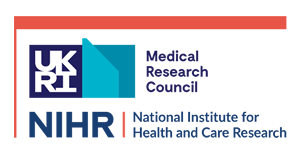Call specification
The MRC-NIHR Efficacy and Mechanism Evaluation (EME) Programme is inviting applications to evaluate interventions delivered in a primary care setting, including:
- general practice
- community pharmacy
- dental
- optometry services
The EME Programme primarily funds studies which seek to determine proof of clinical efficacy, size of effect, and long-term safety of a technology or intervention in a well-defined population. The translational research it supports covers a wide range of new and re-purposed interventions, such as diagnostic or prognostic tests and decision-making tools, therapeutics or psychological treatments, medical devices, and public health initiatives delivered in the NHS.
This call is open to all technologies or interventions with the potential to benefit patient-focused outcomes in the promotion of health, treatment or management of disease. For this call, the EME Programme is also interested in evaluating the efficacy of technologies with the potential to be more efficient than current standard practice, without compromising efficacy. There must be sufficient human clinical proof-of-concept to justify the proposed study.
Example areas of interest include, but are not limited to, the evaluation of:
- technologies for disease diagnosis and/or treatment stratification
- novel or re-purposed interventions to treat common conditions
- technologies and interventions for the management of long-term illnesses, including multiple morbidity
- targeted interventions for the prevention of future ill-health in specific at-risk groups
Within any efficacy study, applicants may wish to include work packages to explore the mechanism of action of the intervention. Any such components must be hypothesis-testing. You can find out more on the mechanistic studies, explanation and examples page.
The EME Programme is keen to support capacity and capability building in translational research, across all relevant professions. Applicants may wish to consider where, with appropriate mentorship and experienced support, early career members of the research team could lead on aspects of the study and develop research skills.
Applicants are expected to consider and address the feasibility of delivering the study in the proposed setting(s). Early engagement with your local Clinical Research Network (CRN) is encouraged.
Out of scope
The focus of the study and main setting must be primary care. Studies where recruitment takes place in primary care but the intervention is delivered and managed in a secondary care setting are not within scope.
Studies seeking to optimise the use of existing technologies and interventions, or explore the comparative clinical and cost effectiveness of those already known to be efficacious, should instead refer to the Health Technology Assessment (HTA) Programme.
Studies seeking to optimise the delivery of services or evaluate technologies where outcomes primarily concern the efficiency or accessibility of services may wish to refer to the Health and Social Care Delivery Research (HSDR) Programme.


